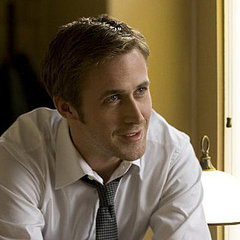Had enough campaigning yet? Apparently, actor and activist George Clooney thinks you need more because he has made “Ides of March,” an intense, well-made story set in the high-stakes world of presidential primary elections. Delving the minutia of campaign life and the evolution of idealism to hypocrisy, the deeply cynical story profiles a young man and an older candidate who enter politics on a mission to better the world but end up selling their souls.
Not only does George Clooney star in the film, but he directed, helped write the script, and produced. It’s loosely adapted from the work of Beau Willimon who worked in the campaigns of Howard Dean, Hillary Clinton, and Bill Bradley and turned his experiences into the play “Farragut North.”
Current It-boy Ryan Gosling stars as Stephen Meyers, a political wonderkid with enough experience and talent to be a formidable campaign press director, but young enough at 30 to believe wholeheartedly in the candidate for whom he works. He sees Governor Mike Morris (Clooney), who espouses ultra-progressive causes, as the second coming of John F. Kennedy. As the film opens, Stephen and campaign manager Paul Zara (Phillip Seymour Hoffman) face a close race in the Ohio Democratic Primary.
Behind the scenes, however, Steven faces thorny ethical dilemmas. A pretty young intern (Evan Rachel Wood) turns out to be a game-changing liability for the Governor. Plus, Stephen flirts with working for the opposition (Paul Giamatti as the opposing campaign worker) and finds the press (led by Marisa Tomei) unforgiving.
As he espouses the highest ideals publicly, he secretly travels increasingly dark paths to cover up the Governor’s misdeeds and protect his own position. The second half of the film turns into a thriller as Stephen coerces abortion, covers up a death, and engages in blackmail, all for the greater good.
With a stellar cast, the acting is top notch and the tight script manages to be interesting most of the time, even when concerned with the minutia of campaign activity. Rated R primarily for pervasive language, the film is considered by some to be an Oscar contender. It certainly has the quality and gravitas to be so, but lacks the popular appeal to be a box office hit outside the Beltway.
The actual politics of Morris take a back seat in the film to the inner workings and betrayals of a campaign, but they pop in the background. One can presume they shine a light into Clooney’s personal politics as his character espouses causes no Democrat presidential hopeful would dare to endorse. Gay marriage and taxing the wealthy? Of course. Pushing hydrogen power? Yes.
Morris goes further when he proposes to outlaw the internal combustion engine as a means to end terrorism. It’s all about the oil, of course.
Things get downright silly, though, when Stephen, with earnest passion in his eyes, urges the candidate to propose a mandatory two-year national service project for youth. “No one will oppose it,” he gushes, which is true in the logic of the film. No one can accuse Clooney of being unsophisticated in his real-life political activity, but the creators of this film are out of touch with America if they think there would be no opposition to two years forced government-mandated activity. For their own good, youth would no longer be free to start a business or a family, travel the world or, say, intern in a political campaign. Nor would they be able to bum around the beach on a quest to find themselves, which surely is inscribed somewhere in the Constitution as a right of every American. It’s a perfect example of the tyranny of people who wish to impose their “good ideas” on others.
Deep down, however, the film isn’t about the politics. With a few tweaks, it could just as easily be set in a Republican campaign. The primary conflict is between personal integrity and opening the door to hypocrisy in a belief that the ends justify the means. Viewers will leave feeling discouraged about the political process and unsure if there are any good guys left. If the very nature of politics turns good men into cold-hearted amoral operatives, that must mean something very bad for our democracy.













